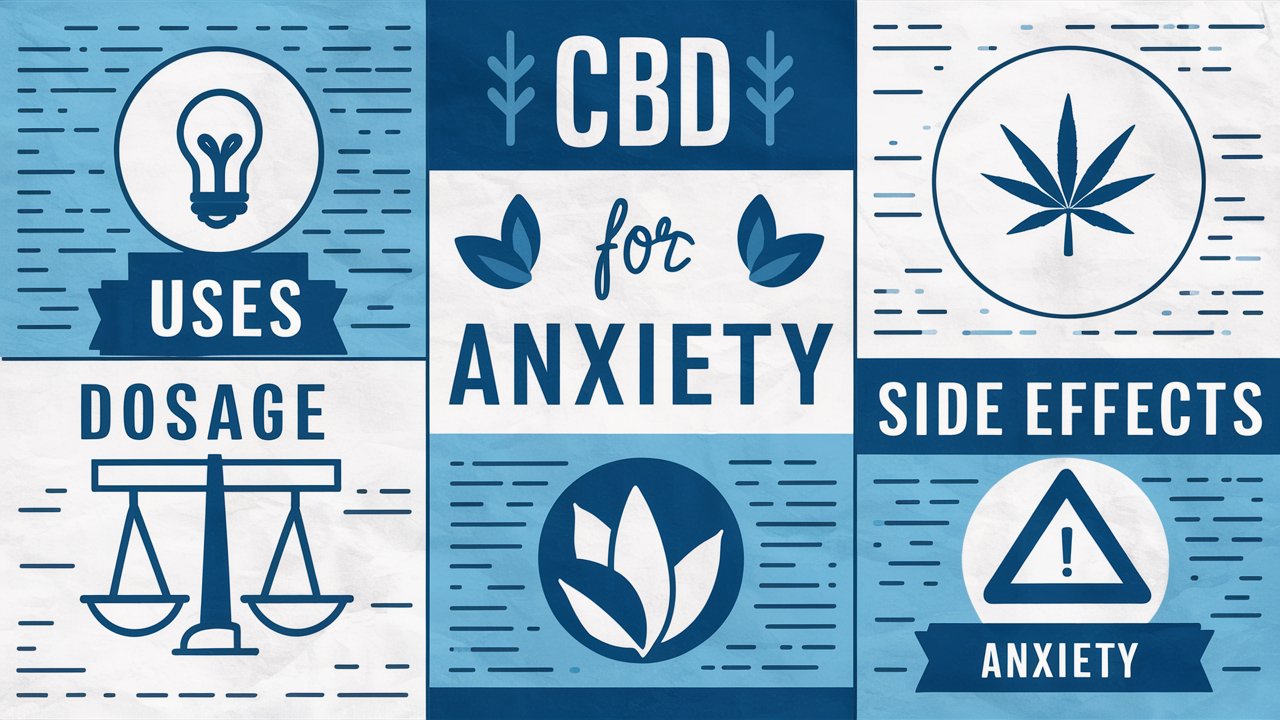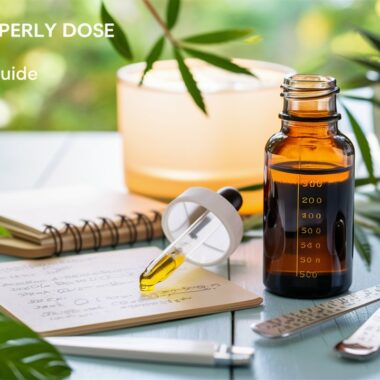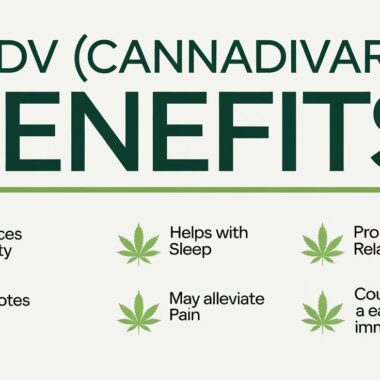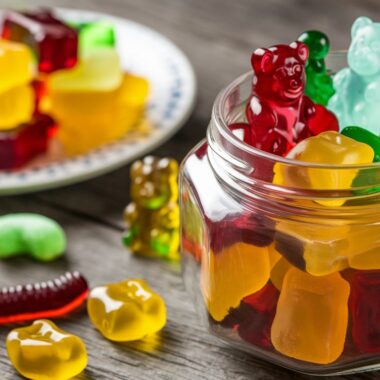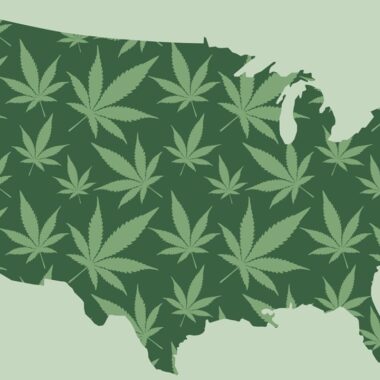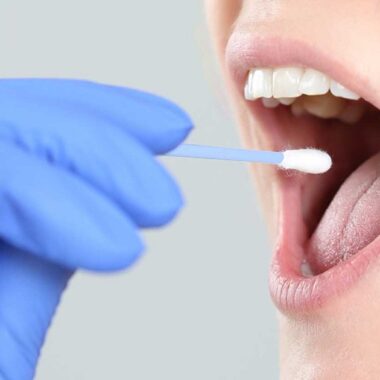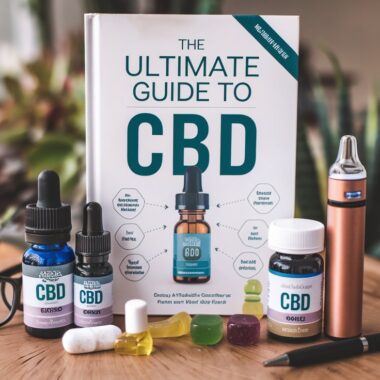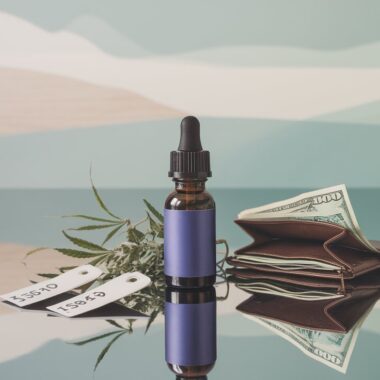Living with depression or anxiety can feel overwhelming — but as natural wellness continues to evolve, more people are turning to CBD (cannabidiol) for potential relief. This article explores how CBD interacts with the brain, what research says about its role in managing mood disorders, and how to use it safely and effectively.
What Is CBD and How Does It Work?
CBD is a non-intoxicating compound found in the cannabis plant. Unlike THC, it doesn’t produce a “high.” Instead, CBD interacts with the endocannabinoid system (ECS) — a network of receptors that helps regulate mood, stress response, sleep, and emotional balance.
The ECS Connection
CBD may influence serotonin receptors (5-HT1A) and modulate cortisol levels — two key mechanisms involved in stress and mood regulation. This interaction may explain why many users report feelings of calm and emotional stability after using CBD.
Research on CBD for Depression and Anxiety
Although research is still developing, several studies show promising results:
- A 2019 study in The Permanente Journal found that 79% of participants reported decreased anxiety within the first month of CBD use.
- A 2020 review in Frontiers in Psychiatry concluded that CBD shows potential as a treatment for multiple anxiety disorders, including social anxiety, PTSD, and panic disorder.
- Animal studies suggest CBD may have antidepressant-like effects by increasing serotonin levels in the brain.
Key takeaway: While not a cure, CBD may support the body’s natural ability to manage stress and improve mood — especially when combined with therapy, exercise, and other healthy habits.
Best Forms of CBD for Anxiety and Depression
Different delivery methods affect how quickly CBD works and how long its effects last:
| Form | How It Works | Best For | Onset Time |
|---|---|---|---|
| CBD Oil/Tinctures | Absorbed under the tongue | Fast relief, flexible dosing | 15–30 minutes |
| CBD Capsules | Ingested and processed via digestion | Consistent dosing | 45–90 minutes |
| CBD Gummies | Tasty, discreet option | Beginners | 30–60 minutes |
| CBD Vapes | Inhaled directly | Rapid relief from acute anxiety | 5–10 minutes |
| Topicals | Applied to skin | Localized relief (less for mood) | Varies |
Recommended Dosage and Use
There’s no one-size-fits-all dosage for CBD. Start low (10–20 mg/day) and increase gradually until desired effects are achieved. Factors such as body weight, metabolism, and severity of symptoms can influence results.
Pro Tip: Always use third-party lab-tested CBD products to ensure purity, potency, and safety.
Potential Side Effects and Safety
CBD is generally well-tolerated, but side effects can occur, including:
- Dry mouth
- Fatigue
- Changes in appetite
- Interaction with medications (especially antidepressants and blood thinners)
Always consult a healthcare professional before starting CBD, particularly if you’re taking prescription medication.
How to Choose a High-Quality CBD Product
When shopping for CBD for mood support, look for:
✅ Full-spectrum or broad-spectrum extracts for the “entourage effect”
✅ COA (Certificate of Analysis) verifying third-party lab testing
✅ Organic hemp source and clean extraction methods
✅ Positive brand reputation and transparent labeling
Conclusion: Can CBD Help with Depression and Anxiety?
Current evidence suggests that CBD may help ease symptoms of depression and anxiety by regulating stress response and supporting serotonin activity. While it’s not a replacement for therapy or medication, it can be an effective complementary wellness tool when used responsibly.
If you’re considering CBD for mood support, start small, monitor your response, and choose high-quality products from trusted brands.
FAQs About CBD for Depression and Anxiety
1. Can CBD replace antidepressants?
No. CBD is not a substitute for prescribed antidepressants, but it may be used alongside them under medical supervision.
2. How long does it take for CBD to work for anxiety?
Many users report calming effects within 15–45 minutes of sublingual use, but consistent daily use yields the best results.
3. Is CBD addictive?
No. CBD is non-addictive and has no known withdrawal symptoms.
4. What’s the best time of day to take CBD for mood?
Morning or early afternoon is ideal for stress management, while evening doses can help promote relaxation and better sleep.
5. Can I fail a drug test if I take CBD?
Pure CBD isolate won’t trigger a positive result, but full-spectrum products may contain trace THC (up to 0.3%). Choose broad-spectrum or THC-free if drug testing is a concern.

